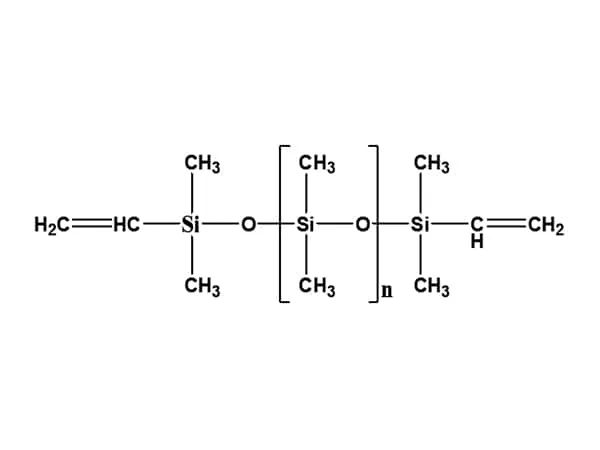Vinyl-terminated silicone fluids are silicone polymers terminated with vinyl groups (-CH=CH₂) at the ends of their molecular chains. These fluids are part of the broader family of organosilicon compounds and are characterized by their versatility and unique properties.
Key features of vinyl-terminated silicone fluids include:
Reactivity: The vinyl groups at the ends of the chains allow these fluids to participate in various chemical reactions, such as hydrosilation reactions with compounds containing Si-H bonds.
Cross-linking: They can undergo cross-linking reactions under appropriate conditions, forming three-dimensional networks or gels. This property is utilized in the formulation of silicone rubbers, adhesives, and sealants.
Thermal Stability: Like other silicone fluids, vinyl-terminated silicones exhibit high thermal stability, making them suitable for applications requiring resistance to high temperatures.
Chemical Inertness: They are generally inert to many chemicals, providing good resistance to oxidation, moisture, and harsh environments.
Applications: Common applications include coatings, release agents, mold-making materials, and as components in adhesives and sealants where flexibility and durability are required.
Overall, vinyl-terminated silicone fluids offer a combination of flexibility in formulation and performance characteristics that make them valuable in a wide range of industrial and consumer product applications.
